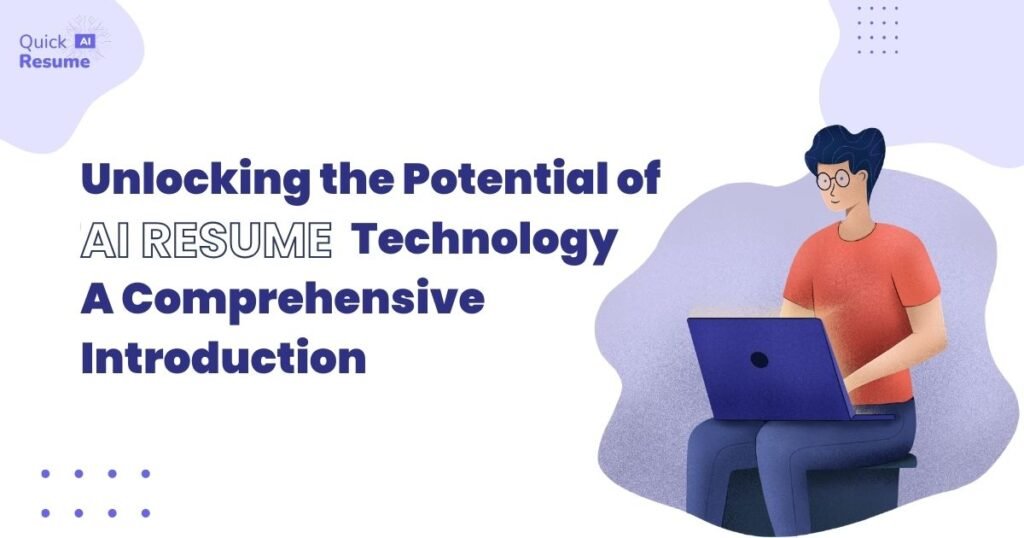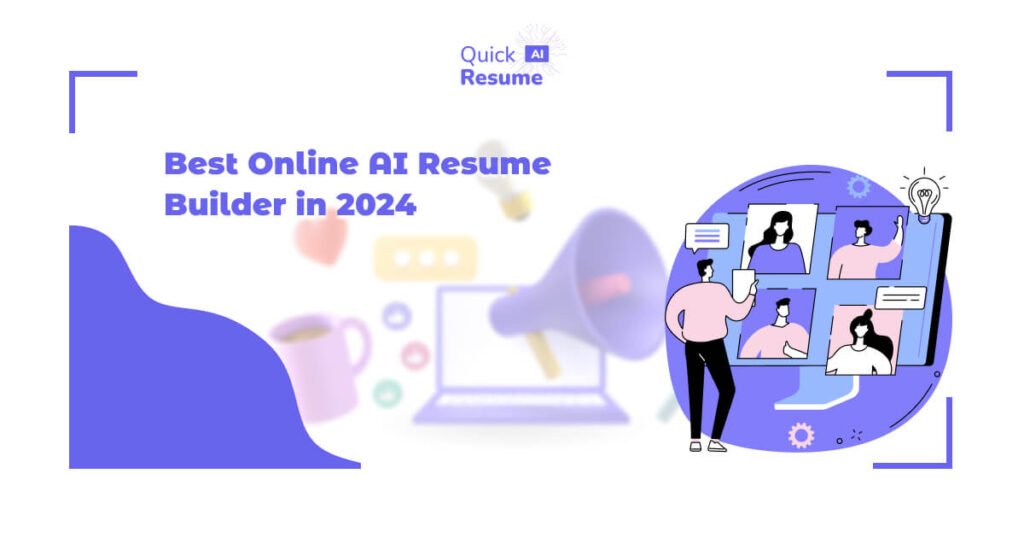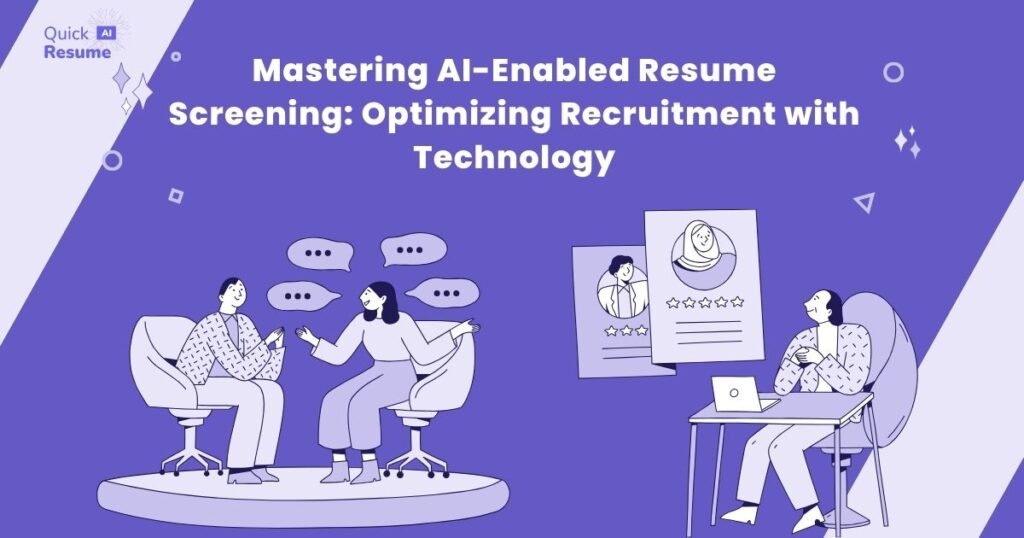
In the quickly changing world of job applications and recruitment, one aspect is standing above the rest – AI resume technology. It’s completely reshaping how job seekers represent themselves and how employers are finding those who fit their positions the best. But like anything that claims to be innovative, it has its complexities.
The complex algorithms that pull through digital CVs worry about data privacy and algorithmic biases. It goes into great detail about this subject, which has a heavy implication for both job seekers and employers. In this deep read, we’ll demystify AI resume technology, give you an understanding of how it works, and help you understand the ways it influences employment.
Introduction to AI in the Recruitment Process
What is AI Resume Technology?
AI resume technology (Resume parsing) is a part of artificial intelligence that uses algorithms to process large amounts of resumes effectively. Rather than just checking for keywords, it understands context from information given in a resumé. This aims to automate this initial stage of hiring.
The Importance of AI in Modern Job Searches
Hundreds, if not thousands, of applications come into every organization when they have a job posting up for grabs. Traditional methods limit companies to sifting through each one manually, wasting precious time on applicants that don’t suit them at all. That’s where AI steps in by making sense of these overwhelming numbers so hiring managers can spend their time reviewing only top candidates.
Evolution and Impact of AI on Resumes
The Shift from Paper to Digital Resumes
Before everything went online, people would send resumes in by mail or drop them off in person! When online became more used, emails were sent with attachments, or they’d fill out online forms for positions found on sites such as monster.com or indeed.com. This made applying 10 times easier because now there are places on platforms dedicated ONLY to job listings! The next step in that progression is AI resume technology.
Advantages and Challenges of AI in the Initial Candidate Screening
For Employers, there are advantages and challenges to using this initial screening process. They can now scale it because it’s not all done manually, but that also means there isn’t a person seeing everything about each candidate, which might cause your application (that was overlooked by the AI) to be looked over again by someone who can see the potential you have.
How AI Resumes Work
Unveiling the Algorithms
AI resume technology’s core is in its algorithms. With current technology available, we’re able to fully understand human-written content thanks to natural language processing (NLP) and machine learning systems (ML). These extract key details about skills, experiences, and qualifications.
Functionalities of AI Resume Systems
The systems used for this task are complex as they need to be able to analyze all different types of resumes, from scanned (paper-based) to digital ones. This way, they can identify the important information within them, such as names, addresses, dates etc. Other things like semantic analyses allow them to understand the meanings behind words, while contextual extraction helps match profiles with specific job descriptions.
Read More: Best Dental Assistant Resume Sample & Writing Tips
Benefits for Employers and Candidates
Employer Efficiency Gains
Employers have found great efficiency gains through the use of this system. It allows them to spend less time on boring tasks that don’t take much brain power, so they’re able to divert their energy toward candidates who show the most promise for their company.
Enhanced Opportunities for Candidates
This system doesn’t only benefit employers, though! Candidates who would typically get looked over in a manual scan have a better chance now since AI does the dirty work for HR departments everywhere. This allows for a more comprehensive evaluation of each candidate in the pool, which eliminates biased judgment between employers, so every candidate has an equal opportunity at their dream position.
The Future of AI in Resumes and Job Searching
Integration and Development of AI in Resumes
The next step for AI resume technology lies in even deeper, more customized integration into a wide range of industries. Tailoring algorithms will lead to better matches and a more accurate way to match candidates with their desired roles.
Ethical Considerations and Machine Learning Challenges
As AI becomes the norm in recruitment, new ethical challenges also come that need to be met head-on. Technology needs to be fair and transparent so that biases do not perpetuate within our system. Regulation will play an important role in how we use this tool moving forward.
Practical Tips for Candidates
Optimizing for AI Screening
You can take matters into your own hands when trying to get noticed by an AI screening process. Using keywords from the job description and organizing content is essential in ensuring that these systems pull up your resume first.
Navigating AI Recruitment Processes
Adapting is going to be essential for job seekers moving forward. This means understanding how the tech works, what you’re likely to come across, and where you can tailor your resume without sacrificing who you are as an individual.
Conclusion
AI resume technology has presented us with a fog light on our journey through evolving hiring processes. It streamlines steps, offers equal opportunities, and ultimately leads us towards a more efficient future — but only if we take advantage of it correctly together. Employers must adopt this tool ethically and responsibly while candidates optimize within its parameters.
If you’re on the front lines of talent acquisition or job-seeking yourself, awareness surrounding these advancements is key. The digital age brings about many changes, but if approached properly, they could very well guarantee success on both ends of the spectrum.
There’s no telling what’s next once AI finds its perfect place within resumes, but one thing is for sure: With care and conscientiousness applied during this learning phase, its potential is boundless. Let’s look forward to the impact it can make in recruitment and beyond.


